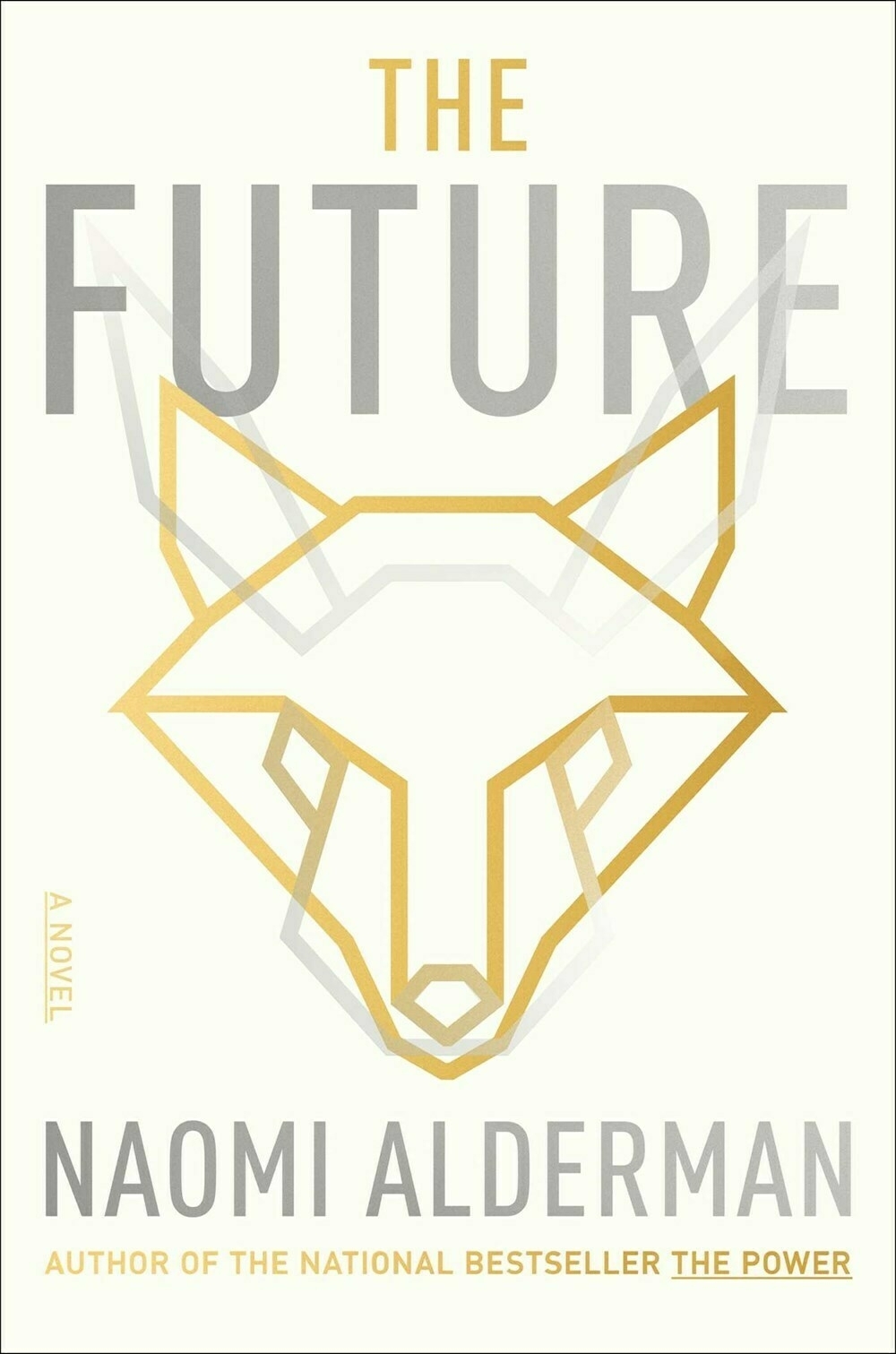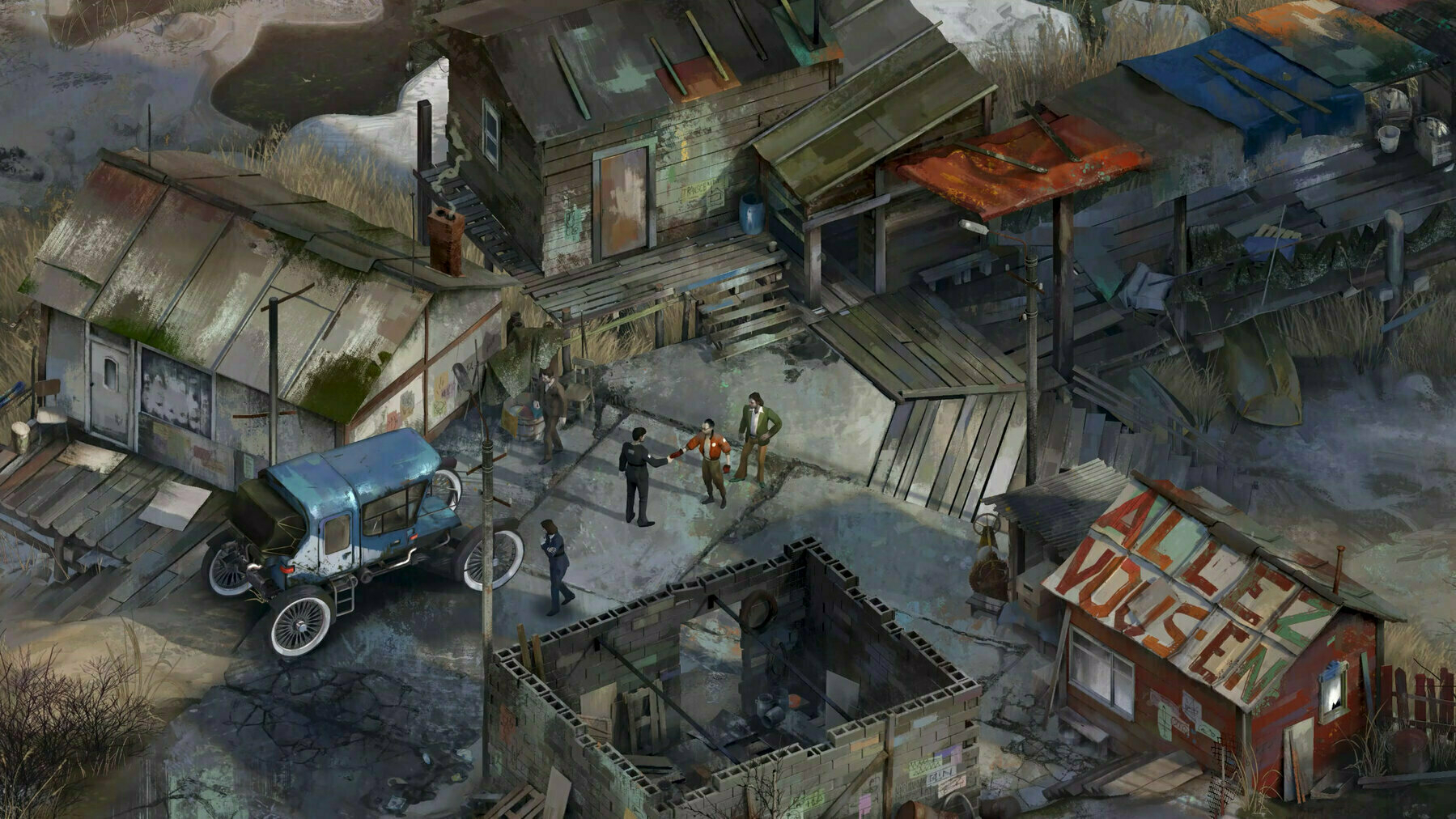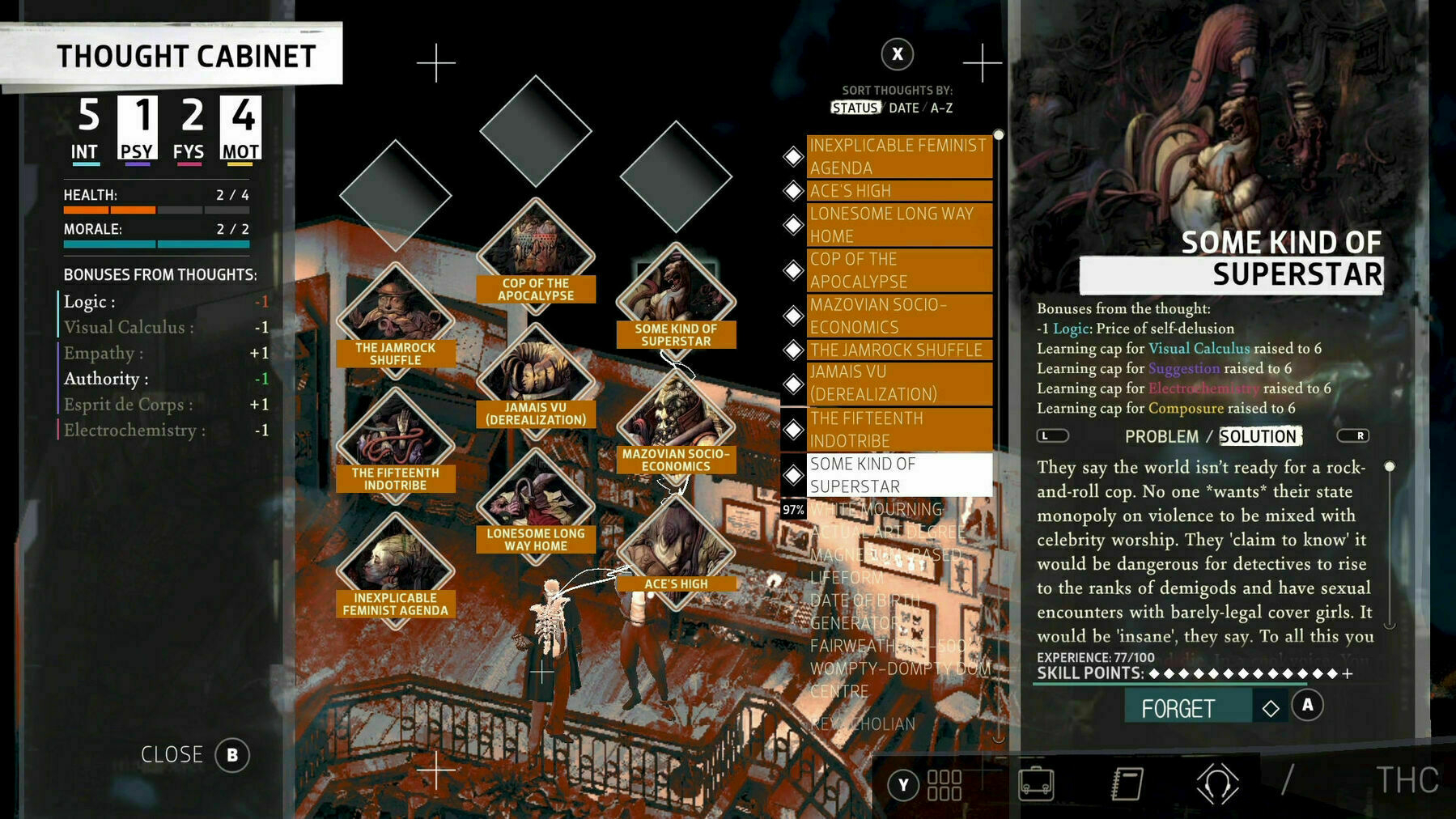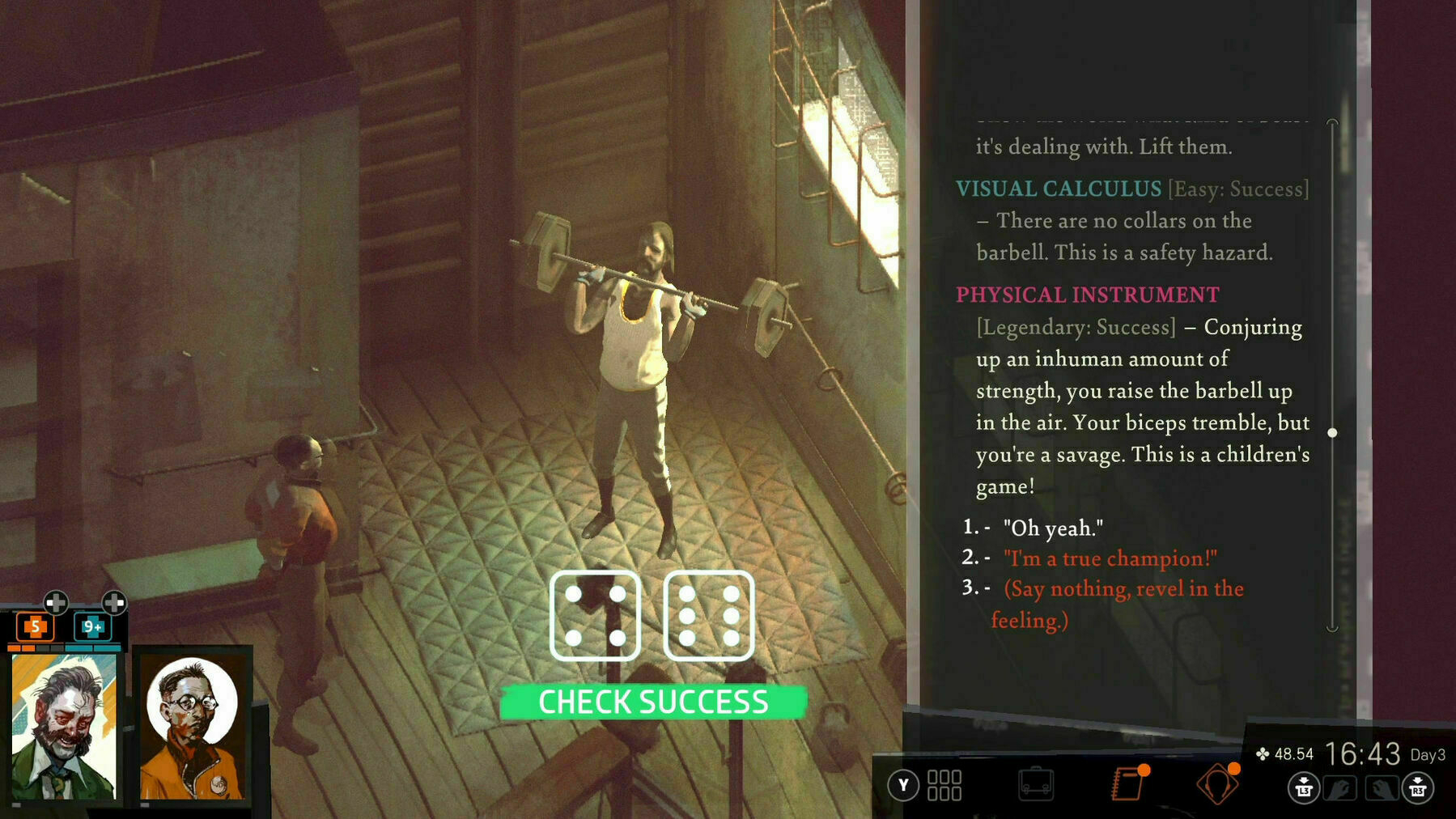Write about the future you want: “If complaining worked, we would have won the culture war already.”
Robert Jenrick, a Conservative MP who has aspirations to lead the party despite apparently being a free-speech-loathing god-hating Nigel Farage fan, seems to think that anyone who says “God is Great” should be immediately arrested.
Well, only if they say it in a language he doesn’t like to be fair - namely it’s the phrase “Allahu Akbar” that he believes should be a crime to utter.
“I thought it was quite wrong that somebody could shout ‘Allahu Akbar’ on the streets of London and not be immediately arrested”
He is of course not suggesting that the exclusively Christian prayers that happen at the start of each sitting of the House of Commons or House of Lords need to go.
In news that chills me to the core, Hazel, a software engineer, has been keeping around 7,500 tabs open on her web browser, Firefox, for the past couple of years.
The Firefox fan tells PCMag in a message that she keeps so many tabs open for nostalgia reasons. “I like to scroll back and see clusters of tabs from months ago—it’s like a trip down memory lane on whatever I was doing/learning about/thinking about,” she says.
There was a moment of panic where it seemed like she’d lost them all, but it’s OK, she figured out how to use Firefox’s cache to retrieve them all.

One of my favourite publishers in terms of their typical subject matter, Verso Books, is temporarily offering up the very topical “Power Games: A Political History of the Olympics” as a free eBook.
The Olympics have a checkered, sometimes scandalous, political history. Jules Boykoff, a former US Olympic team member, takes readers from the event’s nineteenth-century origins, through the Games’ flirtation with Fascism, and into the contemporary era of corporate control. Along the way he recounts vibrant alt-Olympic movements, such as the Workers’ Games and Women’s Games of the 1920s and 1930s as well as athlete-activists and political movements that stood up to challenge the Olympic machine.
TIL: Boris Johnson once disfigured a Long Covid report he was supposed to read by scrawling the word ‘bollocks’ over it.
Absolute moron.
Long Covid is of course, uncontroversially, very real, can be very devastating to people’s lives, and is common enough that most of us know one or more people who suffered from it to varying extents.
Back in March 2023, it was estimated that almost 2 million UK residents - i.e. the people that Johnson was supposed to be serving - actively had the condition at that time.
I wasn’t wrong about the torment nexus AI plastic necklace company called ‘Friend’ probably having had to have spent a lot on their domain name, friend.com.
404 Media reveals that the sale went through at $1.8 million dollars.
Probably makes anyone who’s been on the odd ‘novelty domain name that they’ll never use’ splurge now and then feel better about themselves though.
Revisiting the Friend site made me realise how creepy the headline image is. I don’t want a robot-brain-for-money realising I’m vulnerable. Saying the quiet part out loud and all that.
TIL: The US' current cybersecurity legislation, the Computer Fraud and Abuse Act, is an evolution of anti hacking laws that President Reagan introduced because he happened to watch that fantastic movie, WarGames.
From New America:
Reagan brought it up a few days later at a White House meeting that included the chairman of the Joint Chiefs of Staff and asked, “Could something like this really happen? Could someone break into our most sensitive computers?”
The answer came back a week later: “Mr. President, the problem is much worse than you think.”
I’m sure watching that film too many times as a kid proved quite foundational to my present day existence.
Naomi Alderman's 'The Future' further fed my big tech scepticism
📚 Finished reading The Future by Naomi Alderman.
This is by the same author as the rightfully extremely famous book “The Power”, which is now also a TV series. Most reviews I’ve seen seem to regard “The Future” as a distinct step down from its best-selling award-winning predecessor - not that it is a sequel as such; it stands alone. But I liked it at least as much, and possibly more, than her earlier one. Admittedly a lot of that might be because it plays directly into some of my stronger current prejudices.
It takes place in a world that’s basically a slightly ahead-in-time version of our own. There are three big tech firms that have managed to infuse themselves in almost every sphere of public and private life; let’s call them Facebook, Amazon and Apple. Well, to be fair, the book is slightly more subtle; Fantail, Anvil and Medlar. It so happens that Fantail basically does everything that Facebook does in our world, Anvil does everything Amazon does, and Medlar does everything Apple does.
Fun fact, a medlar is, in fact, a small unpleasant looking fruit which has, in its time, had such nicknames as “open-arse”. When cooked in a certain way it tastes like apple sauce. Clearly someone did their research.
Each is run by some kind of weird selfish billionaire who wields absolute power over their domain and that of their users who has an insatiable thirst for more profit. Nothing is ever enough. Just in case things go pear shaped (which, being largely in control of, they know it will happen at some point), they all have top secret bunkers to go hide out in in the event of some otherwise world-shattering event. I wonder where Alderman gets her ideas from, huh?
The story starts at a point where their fancy-schmancy exclusive AI watch - think ChatGPT but you can trust it and it costs a lot more than $20 a month - tells them that actually today is the day. It’s time to go pick up their wives and kids (if they can be bothered to) and hightail out of there like there’s no tomorrow. Because there may well not be for most of the rest of the population.
The story is vey good, but I particularly revelled in some of the descriptions of the harms these Definitely Fictional characters caused in their profit-seeking ventures.
A couple of examples:
If your data belongs to you, then you ought to decide exactly who uses it and how. You should be able to transfer it from place to place as you want, and access it as you like through any service. The reason they don’t let you do these things is not because it’s hard; it’s because it doesn’t make them more money.
This is not only true in the real world but it illustrates how contingent some of these decisions are, how deliberate and unnecessary. What seems inevitable in the world of technology rarely, perhaps never, is inevitable. It’s choices made by extraordinarily privileged people.
Another such choice that plagues our real world:
The type of emotional optimisation Anvil and Medlar and Fantail did as a matter of course every day. Each of their websites, thinscreen interfaces, smart torcs, burst displays and mobile phone applications had specific commands about what to show and what to bury. Certain emotions drove high engagement - people looked for longer at things that made them angry or afraid…
…
These sites presented themselves as a clear pane of glass through which you could see the world as it was. But they were really a distorting visor, showing you the version of the world that worked best for the board and stockholders of the companies
Algorithms are not inherently bad and wrong. It’s the choice of what to optimise them for that makes them so.
It wasn’t preordained by mystical forces that the primary goal of all mainstream social media networks, amongst other publishing entities, needed to be to capture the attention of users for longer than the users actually wanted to give it to them and make them click on things they didn’t really want to click on. It was preordained by the economic structure “we” chose to live under and the choice - choice! - of business structure that these organisations all ended up going with.
In another world - not Alderman’s one either - the goal could I have been, I don’t know, create world peace perhaps. Or at least try and make your users go away happy rather than angry and upset.
Unfortunately I can’t stop myself now. Here’s another snippet:
We despise the animals because they don’t think just like us, we use them and we hurt them. We invent gods, we invent aliens, now we make a friend out of fucking matchboxes. We want to say it “thinks” but is not true. We want to give it everything, let it make choices, believe it can care for us. It is image of a man made of paper and beads and we so fucking lonely we call it a friend.
Umm, have you visited friend.com recently?
I’ll stop before I give too much away, but if you hold any kind of scepticism about big tech, social media, AI, that kind of stuff then there’s probably something you’ll like here in a philosophical sense. If that’s something you’ve never thought about all that much, which I assume is the case for most normal sane folk, then you might inadvertently learn something about some of the problems people see with these systems by enjoying this novel. And if you don’t care about the topic at all, or virulently disagree with the passages I have to be fair very much handpicked to make a point above, then, well, hopefully you’ll still enjoy the story.

Once again, managing a government budget is not like managing a household budget
I always appreciate seeing a reminder as to why, despite what politicians from several parties insist on telling us, managing government spending is nothing at all like managing a household budget. And thus, the logic you use when doing so should be entirely different.
What you need to do to act as a ‘responsible’ householder under the present framework is different to what you need to do to act as a responsible government minister. Pretending that they’re the same thing is irresponsible (and in fact often represents a misunderstanding of how sensible people do manage household budgets).
Aditya Chakrabortty provides a nice quick summary of many of the relevant factors in an article from today’s Guardian called ‘The cynical spectre of Osbornomics is haunting the Labour party':
…unlike individuals, nation states don’t retire or die; that no household hides a government’s printing press or tax department in its loft conversion; that most families do borrow to invest (for what else is a mortgage?) and will spend cash to keep kids from going hungry
These aren’t the only reasons. A couple more that come to mind include:
- The choices a household makes tend to impact only themselves to any large extent. The choices a government makes can impact the whole nation, its whole economy.
- If a household doesn’t buy a luxury holiday this year then it doesn’t necessarily affect other aspects of their budget. It just saves the holiday money. Whereas cuts to public service costs in one area for example often lead to rises in expenses for other area. A classic example of this would be a reduction in GP services tends to lead to an increased demand for (more expensive) hospital services. Sacking 1000 civil servants? That’s 1000 more people who may require benefit payments, training, education et al for a while.
This doesn’t mean a government in a country with its own currency operates with no constraints of course. Liz Truss’ rapid destruction of our economy proved that.
They’re just different, usually lesser, constraints. And at the end of the day, if it needs money to solve any given emergency, it has that money if it chooses to have that money.
An AI company reinvents the concept of a 'friend'
One of the increasing morass of “throw it all against the wall and hope it sticks” AI companies appears to think they have invented this new concept called “friend”. Well, actually it’s probably the fact that they think they’ve invented a reasonable substitute for the existing concept of friends that’s the unsettling part.
It has a very premium URL - friend.com - which I imagine might have cost more than the amount of revenue the product makes if we’re lucky, although I have my doubts.
Just in case it dies the death I hope it does: it’s advertising a crappy-looking plastic necklace thing that listens to what you say. Then you have to get your phone out so it can send you a text in response at various points in time.
The more useless half of a smart-speaker, kinda? Not according to the makers. It’s your friend. Literal friend. Which makes for a hilarious FAQ with “frequently” asked questions including “When will I receive my friend?” and “How much does friend cost?”.
One percent of me looks at this stuff and thinks maybe, just maybe, there’s a temporary use for this stuff in acute situations, if run for reasons other than idle profit. It’s possible I am just an old man raging at the wind, misguided in an adherence to the appeal-to-nature fallacy.
After all the loneliness epidemic seems to be real, and occasionally deadly. Experiences like those we saw when Replika lobotomised everyone’s girlfriends show that some users do form deep bonds with AI entities. It just doesn’t feel like this is the general, long-term, solution we need. Apart from anything else, this instantiation of the idea seems cumbersome, and if you break it, the company decides to stop supporting it or starts charging an extortionate subscription for it then your friend just died.
We didn’t always have a loneliness epidemic, and it wasn’t because Victorians wandered around town dressed in their top hats and gimmicky plastic necklaces. At the very least, please, please, do and show the actual, rigorous, universally acclaimed research to show that these things do good and do not do harm in the short and long term before foisting them upon an increasingly desperate population. It surely wouldn’t be hard to get funding for that.
A spate of double-yolked eggs
Nine of the last twelve standard supermarket eggs I’ve cracked open had double yolks. I’m not sure I’ve ever seen even a single egg like this before.
What could this mean? Is it another sign of an impending Armageddon?

(Photo by Chris J Walker on Unsplash)
Well, tradition-wise, there’s a variety of options depending on your affiliations. At least according to Sauder’s Eggs:
- Norseman thought that double-yolk eggs meant someone in your family is going to die. Oh dear.
- Wiccans believed that it’s a sign of future good fortune for the egg-cracker. I think I’d prefer to go with this one.
- In some cultures, it’s supposedly a sign that a someone you know (or you yourself) is going to become pregnant.
How often do double-yolks occur? Well according to Dr Karl Kruszelnicki, if you average out the rates from chickens of all ages than 1 in 1000 eggs would have two yolks. So have a experienced a one in many many trillion life event - far rarer than a lottery win?
Well, not necessarily. The way modern egg-farming works means that at a box level double-yolks are not an a statistically independent phenomenon. Eggs of a certain size, from hens of a certain breed or age, or those having experienced certain patterns of light exposure are more likely to be doubles. And distribution networks tend to box up eggs by size and flock - so if you find one you’re much more likely to find another.
This is to the extent that M&S started offering boxes of 100% guaranteed double yolkers for sale. Admittedly at a cost, because to satisfy the guarantee the eggs needed to be “candled” first.
Besides 9 out of 12 isn’t anywhere near the most extreme recorded case. One of my fellow countryfolk apparently once opened a continuous sequence of 29 out of 29 double-yolked eggs (not, of course, from guaranteed double-yolk boxes, that would be even more irrelevant news than this post). And as for a single egg, well, the current world record appears to be an egg that contained an astonishing nine yolks.
Rainbow CSV is an extension for VSCode that makes working with CSV fields in that editor a lot more bearable.

Not only, as you’d guess from its name, does it colour code things - but you can also run pseudo-SQL commands against the file’s contents to get some quick answers right there and then. Use the RBQL command in VSCode to do that.
Syntax is a little bit different to typical SQL, but easy to pickup. This for instance counts records of a certain value:
select count(a.customer_id) where a.meets_criteria == 'TRUE'
We unleashed Facebook and Instagram’s algorithms on blank accounts. They served up sexism and misogyny
(From The Guardian)
Another in a series of experiments (of admittedly varying levels of rigour) that show the tendency of social media networks to push young men towards misogynistic, sexist or even radicalising content as a default.
Australians are now immersed in this river of complete garbage on Facebook.
JAM Software’s TreeSize app is a handy Windows utility to quickly visualise which of your files or folders are taking up large amounts of your disk in various ways.

There’s paid versions that have extra fancy options - automation, duplicate finder, breakdowns and so on. But if you just want to know where all your space has gone, the free one works fine. It’s available in a portable edition too.
Generative AI Is Totally Shameless. I Want to Be It
Paul Ford writes entertainingly about generative AI as being a shameless technology, for better or worse.
But what chance did it ever have when its creators and owners also lack that quality?
Hilariously, the makers of ChatGPT—AI people in general—keep trying to teach these systems shame, in the form of special preambles, rules, guidance…
…
But the current crop of AI leadership is absolutely unsuited to this work. They are themselves shameless, grasping at venture capital and talking about how their products will run the world, asking for billions or even trillions in investment. They insist we remake civilization around them and promise it will work out. But how are they going to teach a computer to behave if they can’t?
Think about your actual rather than idealised office when deciding whether to go into work
When thinking about the “should you force employees to come into the office on the basis that it’s a better environment for junior employees to learn and progress in?” debate, Mandy Brown reminds us to not inadvertently used some idealised version of what an office actually is as our yardstick.
The mistake from here is assuming that offices are naturally better at building those kinds of social and supportive structures.
…there’s a kind of mythical office that remote culture is being compared to, a place where everyone is welcomed, where collaboration and support is easy-going and automatic, where everyone is always whiteboarding or talking in the hallways.
It’s kind of astonishing to see how much this presumed office utopia has become implicit, given we have literal decades of satire about offices as locales of poorly lit, soul-sucking, isolated work, where you are more likely to be abused by your boss than sponsored by them.
It feels to me like a good number of cognitive errors can be avoided by thinking hard about what the appropriate - usually meaning realistic - baseline to compare something to actually is.
An example from our recent past:
Don’t compare any potential harms of “getting a Covid vaccination” against the potential harms of “not getting a Covid vaccination and everything else about your life remains the same”. However miniscule the risk of getting a Covid vaccination is - and for the avoidance of doubt it appeared to be extremely low for the vast majority of people - it’ll always come out worse in that comparison.
Instead a much more appropriate comparison is to consider any risks of “getting a Covid vaccination and less likely to thus get Covid” against the risks of “not getting a Covid vaccination and your increased likelihood of then contracting and/or transmitting Covid”.
Disco Elysium is one of the most atmospheric, most unique, games I've played
🎮 Played Disco Elysium - The Final Cut.
This was the first time I’d played a game quite like this, if indeed there are all that many games quite like this. It was quite an experience.
Set in Revachol, a somewhat failing post-communist state, you wake up in a hotel room with a debilitating hangover and no memory of, well, very much at all. Some might say it’s therefore quite an accurate simulation of parts of some of our real lives.

(Please note that all the screenshots I’m sharing here are from RPGfan.com - I was far too engaged to remember to take my own.)
Slowly, as you point-and-click your way around your new locale, you find ways to piece together what happened the previous night, and indeed some of the previous nights of your life. It transpires that you’re a detective who is there to solve a murder. Much of this is done via talking to other people, many of whom are less than friendly - particularly those who are in reality running the town through tactics of intimidation.
There is an incredible amount of reading to be done. There over a million words worth of text all in all, although in the deluxe version of the game - “The Final Cut” - it’s all voice-acted out as well if you prefer to listen than read. Apparently a million words is like reading The Lord of the Rings and The Hobbit twice through. But, don’t panic, you won’t end up needing to read them all. In fact I doubt you’d even have the option to come close to doing so in a single playthrough even if you wanted to.
So the dialogues are lengthy. But they’re also meaningful. I’ve only played it through once, but your choices of how to respond at least appear to make a real difference to how people treat you later in the game, what opportunities are available to you and, I suspect, the ending.
I soon learned the error of my ways in following that classic RPG-style tactic of mindlessly working my way through every single dialogue option, saying everything the game allowed me to say in the hope the responses would provide clues. That doesn’t work well in the world of Revachol any more than it would in real life. So I started taking my choices more seriously, in order to further the in estimation but also to manage my own (character’s) brain.
“Brain management” is a big part of how you develop your character in this game. Firstly, your survival depends on you managing to sustain both your physical and mental health. At first I found my character losing all motivation for life, let alone detective work, which ended up with me living homeless, under a bridge, rarely sober. That’s the end of the game if you’re not a little careful. Luckily you can save your game pretty much whenever you want so I didn’t have to start all the way over.
You can temporarily boost your physical or mental resilience in an emergency via taking recreational drugs, if you have any and don’t object to doing so - although if your police partner is there they are not the sort of person who’s impressed by such behaviour. And there will be a price to pay in some other aspect of your wellbeing.
For a more permanent form of self-development, you earn points as you progress through the game which you can channel into the development of your brain and body. There are 24 attributes such that fit under 4 categories - intellect, psyche, physique and motorics - that you can elect to improve depending on how you wish to develop your character. Some examples: logic, drama, empathy, pain threshold, reaction speed. Each attribute has various available skill levels.

Your brain state may then influence the choices you can make during dialogue, how other people react to you, how successful you in any actions you choose to make or even what actions or side-quests are available to you - after all you can’t dig into a clue if you never noticed it in the first place.
Your starting set of attributes is dependent on which archetype you choose for your character pre-game. You can opt for a physically strong brawny detective, one with high emotional intelligence or a Sherlock Holmes style character with a high IQ sort of setup.
Another way in which your brain is relevant comes via the mechanism of thoughts. Throughout the game you’ll pick up semblances of ideas. You can choose to dwell on these thoughts, to research them, to “do your own research” as it were. But, like reality, you can only focus on a few at any given time, even when you get over the immediate anguish of your hangover.

These thoughts have quite abstract names “Anti object task force”, “Rigorous self-critique”, “The Jamrock shuffle”, so you never quite know for sure how thinking these thoughts is going to affect you. Some will improve your abilities. Some might make you worse at something. Others are neutral. This seems an accurate reflection of the risks of Googling too hard on some topics in the real world.
Reading books can also have an effect. The final main modifier to your abilities come from your decisions around what to wear. Your wardrobe grows over time as you find or otherwise acquire a large range of outfits each of which can influence your abilities a little.
There’s a lot going on here, but, at least in my experience, little to panic about. I certainly didn’t make the optimum choices but did just fine once I got over my quitting and living under a bridge phase.
The one thing I’d note is that at times the game makes clear that if you follow a certain action or go to a certain place then there’s no going back. To be fair it’s very explicit. But they’re warnings you should heed.
You may well end up with a vast collection of sub-missions as you play, some of which are pertinent to the main quest of murder-solving, others of which are merely interesting diversions. You might do yourself out of the ability to work on a few of the latter type if you disregard such warnings. Unfortunately via being a bit careless around this I failed to complete one of the larger side-quests available in at least the deluxe version of the game - to re-instantiate a successful incarnation of communism (other ideologies are available).
All in all, this was a fascinating and absolutely engaging game of a type I’ve never played before. It was at times slow, bewildering, or frustrating as probability determined I failed to accomplish something I wanted to - some actions' success are dependent on a classic Dungeons-and-Dragons style roll of a dice with the threshold you need to achieve being modified by your character’s personal abilities.

There’s some parts that could be termed tedious or depressing, but I imagine that’s deliberate. It conveyed the atmosphere of the location very well. Indeed this was one of the most successfully atmospheric games I’ve played.
It was, in short, a real, deep and intense experience and one I’m glad I had. A real example of the capability of games to be art. I certainly agree with the many accolades and awards the game won back in the day. I’d be very keen to see if any more examples of this kind of genre and approach are out there.
A Microsoft Powershell command for the brave / foolish-of-heart!
This - I hope:
- looks through all the sub-folders of your present working directory:
- finds all files that have the extension “.rdata”
- that haven’t been updated since 2024-01-01
- and (permanently) deletes them
Get-ChildItem -Recurse -Include *.rdata | Where-Object {$_.LastWriteTime -lt '2024-01-01'} | Remove-Item -Force
Of course you can change the file extensions and dates of relevance to your own needs.
This appears to work for me on the Microsoft Powershell that’s pre-installed with Windows 10. Powershell itself though is available for several other operating systems. Definitely no guarantees from me though that it’s correct and/or won’t destroy your computer.
A bug in Crowdstrike's software breaks large swathes of the world
Large parts of the world are on fire - metaphorically speaking at least, but I’d not rule out a literal interpretation entirely - as a bug in some software from Crowdstrike has inadvertently ruined the operations of various institutions from the worlds of banking, travel, healthcare and beyond. You might not even get paid on time as some payroll processes failed.
What is Crowdstrike? Well, per the BBC:
Crowdstrike is known for producing antivirus software, intended to prevent hackers from causing this very type of disruption.
Whoops.
Apparently they fixed whatever is wrong, but each and every affected device needs to be individually, manually, seen to.
One solution that is apparently worth trying is the same one that fixes almost every other computer issue.
Microsoft is advising clients to try a classic method to get things working - turning it off and on again - in some cases up to 15 times.
We just need the whole world to turn their computers of and on again 15 times.
Crowdstrike last reported having only 24,000 customers. World-disrupting incidents like this just highlight how fragile the way we’ve arranged our technology to operate in can be.
If you ever have a desire to edit MP3 tags without putting your phone down, then Evertag seems worth a look if you’re an iOS user. Supports a wide variety of tags (including album art), cloud services, batch mode, all that good stuff.
Free, with optional paid upgrade.
The compareDF R package seems to be a super convenient way to quickly compare two dataframes to see if they’re the same. Or nearly the same, if you prefer.
It’s often as simple as:
comparison <- compare_df(df_new = my_new_dataframe,
df_old = dataframe_to_compare_to,
group_col = "field_that_identifies_a_unique_row")
No-one seems to sell cheap Linux laptops
It finally happened. My trusty personal laptop died. To be fair I can’t complain; it’s had a good innings, surviving around 11 years. It was a Sony Vaio, which means it long outlasted the part of Sony’s business that manufactured it. It was brought back from the dead once already thanks to a local IT shop, but the fix was impermanent and isn’t worth repeating.
Technology sure has moved on over the decade-plus since I got it. Whilst it could still cope with the basics, it might have gotten too slow to use without frustration after one Windows 10 update or another had I not discovered the virtues of Linux, having installed Linux Mint a while ago.
The performance difference was night and day. No more waiting around for hourglasses to spin or 10 minute boot-up times. And also no more sponsored “recommendations” for apps I’d never want. No more extremely low quality unsolicited “news” in the Start menu.
You can turn much of that off to be fair. But, come on, even the once-sacred, once-pure pastime of many an office worker - sol.exe - was infused with 30 second long video advertisements. Oh, don’t worry, you can still play their solitaire and minesweeper ad-free if you want to. For $20 a year.
For anyone else who has old tech that’s too slow for the more mainstream operating systems, yet correctly detests unnecessary e-waste, I strongly advise you give Linux a go. Despite its reputation, these days if things go smoothly it’s not an immense technical challenge to install, and it’s certainly not hard to use for day-to-day work and play once it is installed. At least if you go for one of the distributions that prioritises ease of use and/or consistency with the computing experiences of other operating systems (Linux Mint being one of those, many other options exist). So you’ve not got a lot to lose if you alternative is throwing the machine away.
Plus there’s no shortage of high quality Linux software to replace your Windows apps. Much of it is free of charge and it’s often extremely easy to install thanks to various pre-installed graphical package managers. And in the case that you do need to run Windows programs, technologies like Wine might get you there.
I soon learned to enjoy Linux more than Windows. I’d set it up as a dual boot system but found that I never actually booted to Windows. Thus I figured that this time I’d go out of my way to buy a laptop designed for and preinstalled with Linux to replace it. I imagined it might even be a cheaper option give there’d be no Windows licensing costs for manufacturers to pay. As much as I’d enjoy some £5000 power-beast it’s just not going to happen right now short of a lottery win.
Turns out I was very wrong, unless I just didn’t search well enough.
Not all that many companies seem to sell new machines with Linux pre-installed on. System76 seem to be amongst the most famous dedicated providers of Linux offerings. But all are substantially above $1000, even without considering any shipping costs to the UK. Juno Computers are another option. Their “entry level” laptops appear to start from £970. Although actually if you click around enough you can find some with older processors that start from £655. StarLabs are another provider, their laptops start at £969.60.
Of the more mainstream computer providers, Dell also do some. They even offer instructions as to how to replace the OS their other laptops come with with Linux which is very cool. But their famous XPS range that has the option of coming with Ubuntu Linux are all above £1000 as far as I can see.
Why so expensive when you can go to some high street shop and get a (admittedly not great) Windows laptop for like £300? To be honest I haven’t done the research to know the answer to this question, which almost certainly has an an actual answer. But heaven forbid I do my homework. So I’m just going to make guesses, that it’s one or more of these potential reasons:
- Linux laptops are not at all popular. It’s a niche market. It’s much more expensive per item to make things fewer people buy.
- Maybe they tend to have better hardware? I guess it’s probably nerd types that tend to want them. Perhaps they’re more likely than average to care about performance.
- If you’re intending to support your customer’s usage of your machine then there would presumably be ongoing costs for that. It must be harder (more expensive) to find agents who can help people solve Linux problems than Windows.
- You’d also have to make sure that drivers etc. for all the hardware you include exist in Linux - and write and maintain them if not.
- Most Windows PC manufacturers and distributors appear to pre-install a load of truly garbage software that you probably don’t want on the system before selling it to you. Clearly this is not for altruistic reasons. Maybe the kickback they get from doing that is so high that it more than makes up for the cost of Windows.
- Perhaps the people that want Linux laptops really want Linux laptops so will pay more? And far be it from any company to not exploit every possible £ of revenue opportunity.
- I’m sure OEMs don’t pay the same for Windows as us mere people do. Perhaps Windows is very cheap for them, or they even receive benefits from Microsoft for ensuring more folk get into their ecosystem.
Nonetheless it seems like a potentially missed opportunity. You can buy (low-performing) Chromebooks for not much more than £100. But I don’t think I could live with a Google operating system, and I’d assume a lack of software choice from the point of those of us who enjoy tinkering, who love options screens with 100 preferences, who occasionally might want to do our own coding.
So, despite my philosophical and in-practice preferences, I’m opting for some sub-£500 Windows machine. In any case, there’s always the option to replace Windows with Linux, which I can totally see myself doing in short order. But I guess I will experiment with Windows 11 for a bit first given I’ve never used it. Maybe I’ll be pleasantly surprised.
That decision does mean I’ll probably want to dedicate some time to reading and acting on a ton of articles like ‘How to disable annoying ads on Windows 11’ and “How to remove bloatware from your new PC” to try and minimise the semi-spyware and advertising networks that apparently infuse Microsoft’s latest creation, an apparently ever more enshittifying iteration.
Ads in the Start menu, in File Explorer, maybe even in Settings for crying out loud - although perhaps fair to note that most of the latter ads are likely for Microsoft services that are supposed to improve your experience, such as OneDrive - if you’re willing to pay. In any case, I like Alaina Yee’s take in PC World:
Look, I’m not in marketing, but if an ad causes a seasoned tech journalist to briefly think his PC got infected with malware, maybe your advertising approach needs improving.
404 Media reveals the “Face Fraud” marketplace, wherein for a few dollars you can buy a set of bland photos and videos of an anonymous human other than yourself.
You can then use these to fake your identity in order to get around any identity verification checks of the sort you might find on various online services including cryptocurrency exchanges - “stock models for services specifically designed for fraud”.
To me, worryingly, this seems like a service that could probably be replaced en masse by generative AI sooner or later. After all the website “This Person Does Not Exist” happily spits out one-offs of entirely fake people on demand. An alternative even lets you specify the age, gender and ethnicity you want.
Contra the New Yorker, Christopher Snowdon gives us some reasons to believe that the case isn’t as absurd as it seemed to be at first sight.
Of course as a total outsider there’s no way for me to know who’s right, who’s telling the wholer truth. But perhaps the recent verdict is less obviously wrong than I’d have thought based only on the New Yorker article.
Britain now has MPs aged from 22 to 80
The recent UK election, with its Labour landside, brought a new record for Britain’s youngest serving MP. Sam Carling, a new MP for Labour in North West Cambridgeshire, is 22 years old. This makes him the first MP to be born in the 21st century. This comes after he scraped victory by just 39 votes against a Conservative MP who had held the seat for nearly 20 years and had a majority of 25,983 in the last general election. Impressive stuff.
As wild as that seems when I think back to my own experience of being 22 - which was definitely not compatible with running any part of anything, let alone the country - I’m excited to see how he goes. After all, I usually find that young people make voting decisions I like better.
At the other end of the age spectrum, Sir Roger Gale, from the Conservative party in the constituency of Herne Bay and Sandwich, is currently the oldest MP. He was elected in 1983 - 19 years before Carling was born - and is currently 80 years old.
The UK has a new Labour government
The election is over. The UK has a new government, following a landslide victory by Labour.
The results in terms of seats, as per the BBC:

There’s a lot going on under the surface of these numbers, not all of which is reassuring. For one, the “landslide” is a lot more landslidey in terms of seats than votes. But we can surely take a couple of days to celebrate the chance, however small, that we have a new set of people governing us who maybe, just maybe, can improve the lives of our citizens along with what remains of our country.
Whilst he retained his seat our previous PM, Rishi Sunak, has apologised and is going to stand down as Conservative leader.
Other Tory VIPs were less fortunate, losing their seats entirely. That list includes ex PM Liz Truss, who lost her huge 32,988 majority, as well as Grant Shapps, Penny Mordaunt, Alex Chalk and Jacob-Rees Mogg.
Labour lost one potential seat to the excommunicated Jeremy Corbyn.
Unfortunately Reform’s Nigel Farage won his seat - 8th time lucky for him, 1st time unlucky for us - along with 4 other folk from Reform.